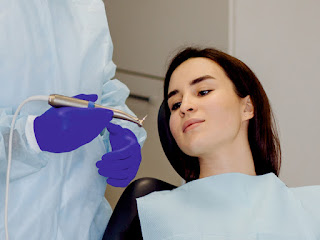So, you've just had a tooth extraction, and you're committed to maintaining your dairy-free lifestyle. But navigating your diet post-extraction can be tricky, especially when dairy seems to find its way into so many foods.
Fear not! With some savvy tips and delicious alternatives, you can sail through your recovery period without compromising your dairy-free principles.
And if you're in Plano, you can consult with a dentist who understands your dietary needs and can provide tailored advice for maintaining oral health while avoiding dairy products.
Understanding the Importance of a Dairy-Free Diet Post Tooth Extraction
Before we delve into the nitty-gritty of maintaining a dairy-free diet after tooth extraction, let's first understand why it's crucial. Dairy products, such as milk, cheese, and yogurt, are known for their calcium content, which is essential for bone health.
However, dairy can also be high in fat and sugar, which may hinder the healing process and increase the risk of infection post-extraction. Opting for dairy-free alternatives can help promote faster healing and reduce the chances of complications.
Stocking Up on Dairy-Free Essentials
The key to successfully maintaining a dairy-free diet after tooth extraction is preparation. Stocking your pantry and fridge with dairy-free essentials ensures you have plenty of options on hand during your recovery period. Look for plant-based milk alternatives like almond, soy, or oat milk, which can be used in place of dairy milk in recipes and beverages. Additionally, explore dairy-free cheese options made from nuts or soy for a satisfying cheesy fix without the dairy.
Exploring Dairy-Free Recipe Ideas
Eating soft and easily chewable foods is recommended during the initial days post tooth extraction to avoid discomfort and aid in healing. Luckily, there's no shortage of delicious dairy-free recipes to explore.
Whip up creamy soups using coconut milk as a base, indulge in smoothies packed with fruits and dairy-free yogurt, or savor comforting mashed potatoes made with dairy-free butter and almond milk. Get creative in the kitchen and experiment with new flavors and ingredients to keep your meals exciting and satisfying.
Snacking Smart with Dairy-Free Options
Snacking plays a crucial role in maintaining energy levels and ensuring you get the nutrients your body needs during the recovery process. Opt for dairy-free snacks like nuts and seeds, hummus with veggie sticks, or dairy-free yogurt topped with granola and fruit.
These snacks provide a good balance of protein, healthy fats, and carbohydrates to keep you fueled throughout the day without relying on dairy products.
Hydrating Wisely with Dairy-Free Beverages
Staying hydrated is essential for overall health and can aid in the healing process after tooth extraction. While water should be your primary beverage of choice, there are plenty of dairy-free options to keep things interesting.
Experiment with herbal teas, infused water, or homemade fruit juices to stay hydrated and add variety to your drinks. Avoid sugary beverages and caffeinated drinks, as they can potentially irritate the extraction site and delay healing.
Conclusion
Maintaining a dairy-free diet after tooth extraction is entirely feasible with the right approach and preparation. By stocking up on dairy-free essentials, exploring delicious recipes, snacking smart, and hydrating wisely, you can sail through your recovery period with ease.
Remember to listen to your body, take it slow, and prioritize nutrient-rich foods to support optimal healing. With these tips in mind, you'll be back to enjoying your dairy-free lifestyle in no time!







